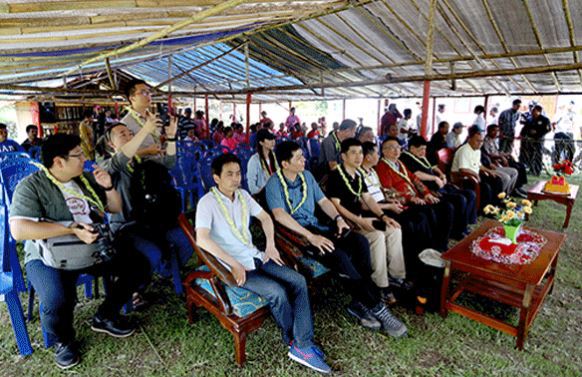For many years, the NPUST Department of Forestry has been committed to eco-friendly issues and has had an excellent track record in the conducting of forest resource surveys and sustainable development. More recently, the department has been cooperating with Gold Partners, which has just obtaining forest management rights from the local government in Indonesia. On April 12th, in Indonesia’s Maluku Province a public briefing was held to share on the “carbon exchange and forest management” project that the partners will be carrying out. The Indonesian government will allocate approximately 2 million hectares of forest towards to project, working with experts from Indonesia and Taiwan to manage the area. The experts representing Taiwan will include the NPUST Department of Forestry’s Assoc. Professor Chien-Chang Chen, Dr. Jian-Hsin Wang, Dr. Jun-Hong Wei and Dr. Hong-lin Luo. The team traveled to Indonesia to conduct comprehensive exploration and geological surveys, and in the future, they will assist local residents with development of “under-forest economies”. Enterprises and scholars from Taiwan and Indonesia will assist provincial and county governments in Indonesia to effectively manage and protect their precious forest resources and native species.Assoc. Professor Chien-Chang Chen stated explained that “through on-site surveys and assessments it was clear that the forest resources were very rich. However, this has attracted problems related to land-grabs and deforestation. The forest itself has great potential with respect to the development of under-forest economies. In the future, in addition to conducting overseas internships for Department of Forestry students, plans are to introduce the forest area into the international carbon trading market.”The under-forest economic activity will primarily focus on the cultivation of Brazilian mushrooms and agarwod. These two high-economic-value products will be used to improve the economic situations of the local residents and promote local development. Another very important objective that was set for the time spent in the area was to conduct a practical poverty alleviation programs and exercise higher education social responsibility by conducting exchanges with local tribes and children, 400 books were donated to local students and high quality corn varieties to local farmers.

